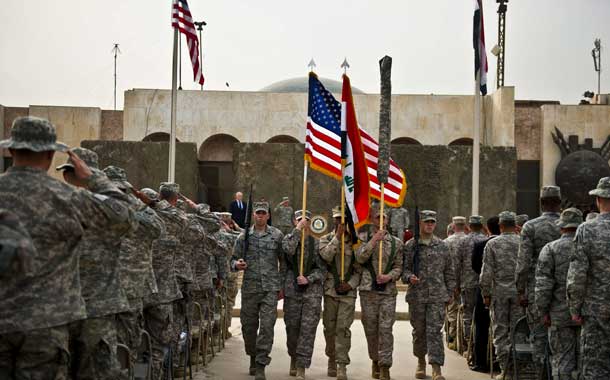In an interview with the website of the Strategic Council on Foreign Relations, Dr. Seyed Razi Emadi referred to the unexpected visit of the US secretary of defense to Baghdad on the eve of the 20th anniversary of the country’s invasion of Iraq, saying: The debates regarding the presence of the US troops in Iraq have been raised for years; Including in 2011, in the government of Mr. Nouri Maliki, the government, parliament, and people put much pressure for the withdrawal of the US forces from Iraq, and although the Americans insisted on staying in Iraq, a large part of their forces left and finally the agreement for the presence of the US military forces somehow was not extended.
He stated that it had been more than ten years since the presence of the US forces in Iraq had become a severe issue. However, there is still no consensus within Iraq about this and added: Apparently, some groups and a part of the people demand the withdrawal of the forces, and some groups and people also emphasize the necessity of the presence of those forces. The supporters of the presence of the US military forces are not few; for example, the Kurds and a large part of the Sunnis and even some Shiite groups want the presence of the US forces in their country.
The university professor said: Since the US administration assassinated the leaders of the Resistance in Iraq, Martyr Sardar Soleimani and Abu Mahdi Al-Muhandis, the issue of the withdrawal of American forces became a severe agenda and was followed up by the Iraqi government and parliament. Political groups exerted much pressure, and the issue reached a point where Mustafa Kazemi and Biden signed an agreement to lower the presence of the military. Considering that the majority of the parliament is in the hands of the Shiite groups, only a few days after the assassination of the Resistance commanders, the Iraqi parliament approved that the American troops should leave the country.
Emadi added: About 2,500 military forces remained in Iraq, following the training of Iraqi forces in a sense, and thus cooperating with the Iraqi government. However, it seems that the remaining number of US forces is a sign that there is still no firm will and theoretical consensus for the complete withdrawal of those forces.
He considered the reduction in the number of American forces in Iraq and the effort to reduce the extent of dependence on them as an achievement for Iraq. He continued: Of course, this does not mean that the US does not influence Iraq, but this country still has its political influence and tries to maintain its military bases for various reasons, including the costs it has incurred over the years.
The analyst of West Asia affairs cited high insecurities against the US forces as the reason for the reduction in the number of American military bases in Iraq and said: However, the US still wants its forces to remain in Iraq and gave the message to the groups that want the withdrawal of the troops, that by reducing the number of forces, ‘we have heard your voice.’
Referring to the statements of a senior US defense official after the visit of the US defense secretary to Iraq that the trip was made to show Washington’s commitment to maintaining its military presence there, he emphasized: The main message of the US defense secretary’s visit to Baghdad was that they want and insist on keeping their forces in Iraq. Even though in the announced policy, the prime minister of Iraq stated that his country does not need foreign troops, this policy will only remain as an announcement.
The professor of international relations reminded me: The American side also wants to keep its forces in Iraq because that country has an important status for the United States. On the one hand, the US considers itself to be the role player in the new construction of Iraq and claims that it has fought against ISIS; on the other hand, Iraq is a country with an important position. The possibility of proximity to the Islamic Republic of Iran is significant for the United States; Iraq is a large country with proven oil reserves and production and export. Iraq is also demographically important for the US, and they try to prevent the connection between Shiite countries and Shiite populations by being present in that country.
Saying that the US presence should not be seen only with military functions, Emadi noted: This presence also has political and cultural processes. Culturally, the US is taking extensive measures to influence the institutions of that country and the culture, social and educational structure of Iraq.
Emphasizing that the United States has resisted a lot in recent years to continue its presence in Iraq, he pointed to the assertions and threats of some Iraqi political groups against the presence of the US military forces. He said: The United States uses the geographical location of Iraq against some neighboring countries. The presence of the US army forces in any situation close to the Islamic Republic of Iran has consequences for it and its allies. Iraqi soil was used to assassinate Iran’s most important military commander. The then-Iraqi government did not take any appropriate action against that assassination.
The expert on West Asia affairs continued by stating that Iran should increase its security measures, adding: In the last year, clashes between the Resistant Group and the US military forces have decreased a lot, but with the continuation of its military presence in Iraq, the United States will pose threats to the Resistance groups and allies of Iran in Iraq, considering that they enjoy access to the Iraqi skies. At the same time, at the regional level, we also witness the US use of some bases in Syria against the Resistance.










0 Comments